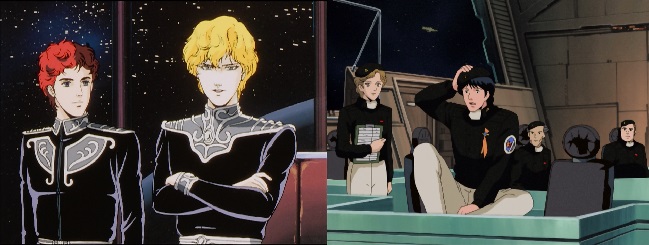This year, I’ve watched too many pretty boys and not all of them were as cute and sweet as this high school boy and his absolute unit of a monster husband.
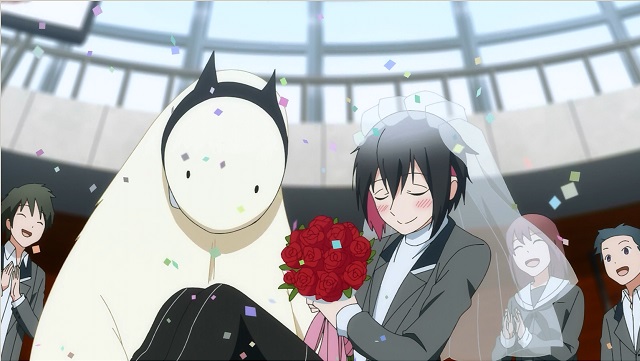
That’s from this season’s 3 minute short series Jingai-san no Yome, about high school boys becoming monster brides, which was adorable and cute and had more than a hint of queer subtext. It would be great if all pretty boy series are like that, but boy howdy is that not the case. It might just be my bad luck with them, but pretty boy fujoshi bait and reverse harems (sic) and the like tend to be the most cynical cash grabbing minimal possible effort anime series. Even when compared to the sister fucker shows. When I first started watching seasonal anime I made a point to watch everything, but I soon gave up on anything that looked like a cute boys doing cute things show because they were all so dull and pointless.
Hypocritical maybe considering how many cute girls doing cute things shows I do watch, even when they’re not all that good, But again, I’ve seldom found any that were anywhere near as dull as a very many cute boys series are. It’s not that I like girls more than I like boys, it’s that more effort is put into the later. So many series seem to think it’s enough to just throw a dozen or more archetypes at the viewer with little in the way of plot, character or visuals to make it more interesting. That’s why I stopped watching them, but this year I’ve found half a dozen or so decent ones being broadcast. Shoutout here to the seasonal first impression guides at anime Feminist, which pointed me in the way of a few of those.
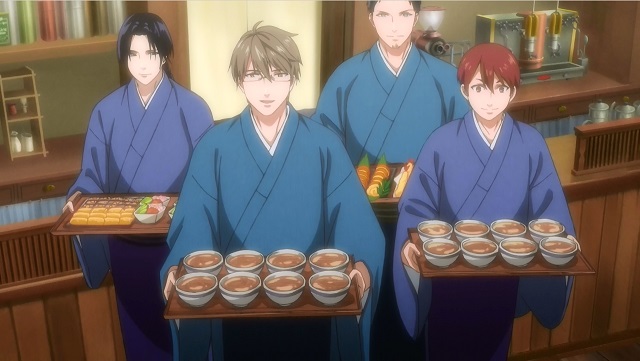
So for example, spring season’s Rokuhoudou Yotsuiro Biyori might have its complement of pretty boy stereotypes — the short tempered redhead, the big energetic foreign dude, the calm and serious one, the calm and serious one but with glassess — to ship together but it also takes the time to tell actual stories. Working at a traditional sort of Japanese restaurant, these four get involved with the everyday problems of their customers — not all of whom are women — and help solve them, or at least offer a listening ear. It’s all done with a sense of humour and it’s cozy as fuck. If you like iyashikei/healing anime this is a series you’d properly like.
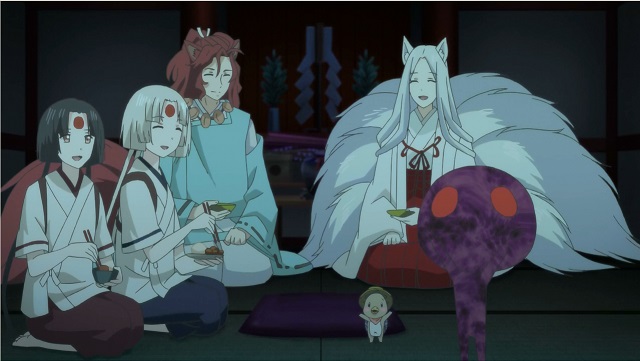
Kakuriyo no Yadomeshi also debuted in the spring season and ran for two full cours, a rarity for a pretty boys series. Tsubaki Aoi is a college student raised by her grandfather after her mother abandoned her and like him, she can see ayakashi (traditional Japanese monsters/demons). What she doesn’t know is that her grandfather used her as collatoral for a debt he owned to the Tenjin-ya innkeeper, one of the most respected and feared oni of the Hidden Realm. So one day not long after her grandfather died, she gets kidnapped and taken to the Hidden Realm to marry the innkeeper. All of which is a frustratingly common setup, the normal girl forced into a relationship with an overbearing, arrogant man who she manages to change for the better. A bit dodgy, but once moved past this setup the series is actually quite fun, with Aoi using her cooking talents and quick wit to get herself and her new demon friends out of all sorts of dangers. If you like scenes of cute, fluffy monsters eating food and smart, compassionate heroines this is a good series to try.
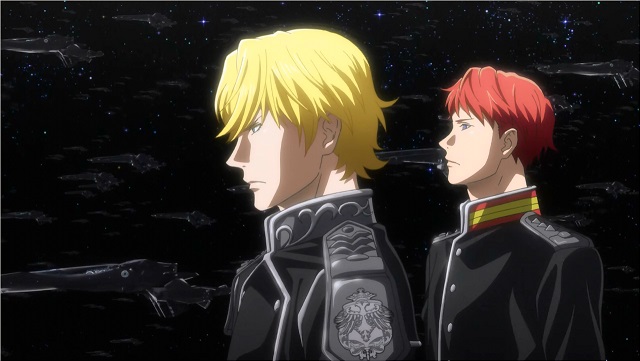
Of course for the prettiest of pretty boys, the ones who put the fashionable into fascism, you have to go to the Legend of the Galactic Heroes reboot, which upgraded both the space battles and the protagonists looks 1000% from the original while keeping the slightly fascist ideology intact. At the very least it got me off my ass and watch the original. The reboot hasn’t quite reached its legendary density yet, but then it’s early days. Hopefully the sequel will not take too long to arrive.
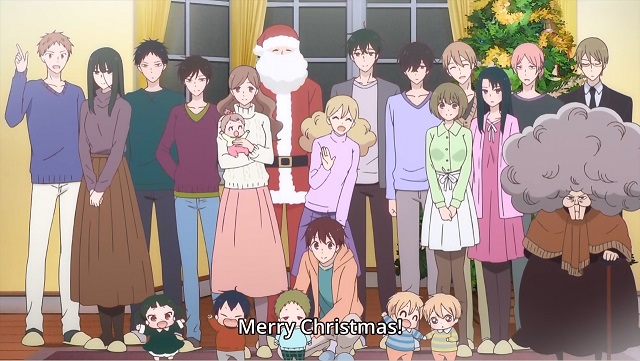
Other noticable pretty boys anime this year were Devils Line, a vamperic mopefest that still held my attention to the end despite its drab colours and animation. There was also Gakuen Babysitters which fell squarely in the cute boys doing cute things camp, in this case baby sitting. This was actually one of the series I was looking forward to because the manga was adorable and luckily the series didn’t disappoint. Ryuuichi and his young brother Kotarou are so sweet together, the other babies are all cute but cutest of all is the tsundere chairwoman who took the two in after their parents died in a plane crash. It’s a good, fluffy series because it has this core of seriousness, of tragedy at its heart. And that’s the common thread with all these series: they have something more than just pretty boys interacting or flirting with each other.
This is the ninth post in this year’s twelve days of anime challenge. Tomorrow: Watching too much slice of moe.
